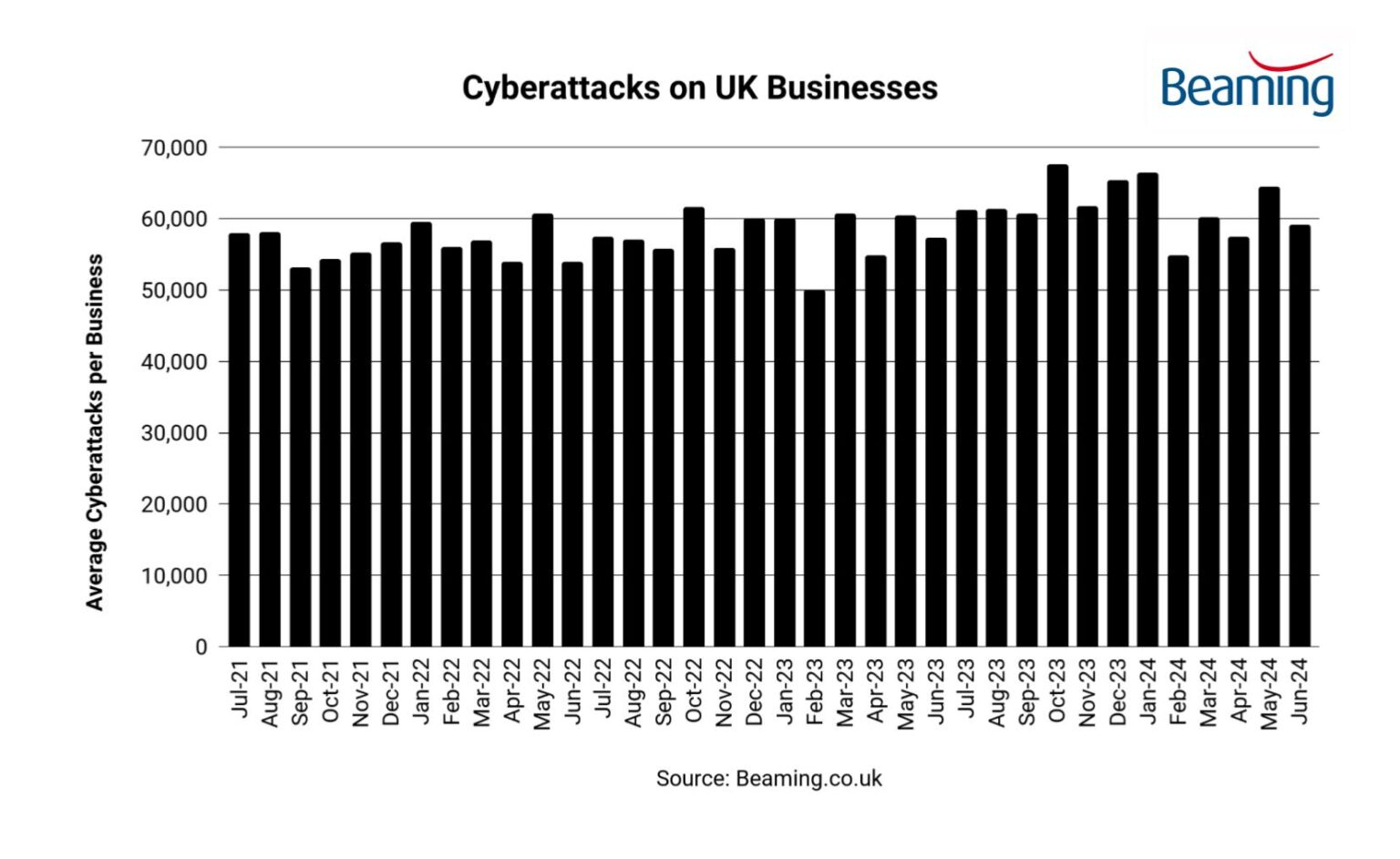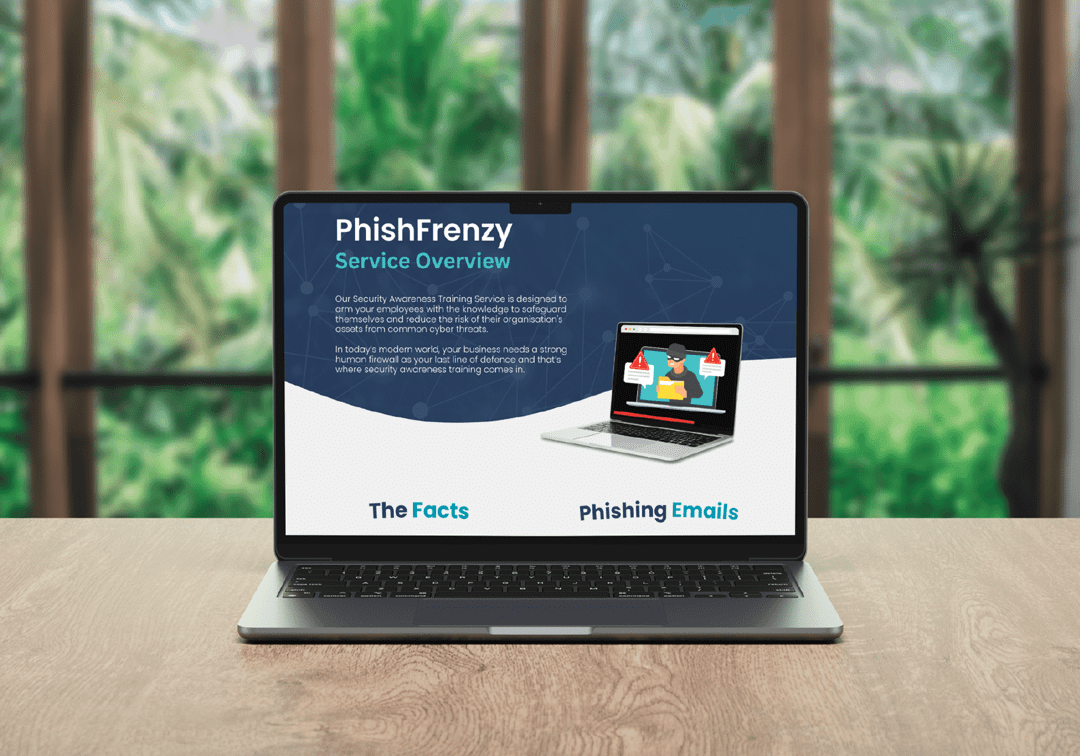
Beaming, an internet service provider for businesses, revealed that UK companies encountered over 180,000 cyber-attacks each between April and June 2024. This alarming statistic highlights the urgent need for robust cybersecurity protocols.
The rise in cyber-attacks represents a 5% increase compared to the same period in 2023, with businesses facing continuous threats. Despite most attacks being intercepted by network defences or company firewalls, the persistent nature of these threats underscores the importance of vigilant cybersecurity measures.
Understanding the Threat Landscape
Beaming’s analysis indicated a surge in cyber-attacks, continuing a worrying trend from the end of 2023, when businesses faced attacks every 40 seconds. The first quarter of 2024 was also intense, with companies encountering attacks every 43 seconds.
A Censuswide survey conducted for Beaming reported that over 1.5 million UK firms experienced some form of cybercrime last year, costing more than £30.5 billion.
The study identified 267,737 unique IP addresses involved in Q2 2024 attacks, with significant activity traced to China (22%), the USA (9%), India (6%), and both Russia and Brazil (3% each). IoT devices were the primary targets, facing 179 attacks daily, while company databases and web applications encountered over 20 daily attacks.
Our Thoughts
The findings from Beaming are a wake-up call for businesses across all sectors, including accounting, finance, and real estate. As cyber-attacks become more frequent and sophisticated, no company can afford to be complacent. Implementing strong cybersecurity measures is no longer optional but a necessity to protect sensitive data and maintain trust with clients and stakeholders.
Sonia Blizzard, managing director of Beaming, said: “The elevated levels of cyberattack activity we observed in the second quarter of 2024 continue a worrying trend of malicious online activity for UK businesses. These attacks don’t discriminate. Every company with an internet connection is in the firing line, and with attacks occurring every 44 seconds, the potential for significant harm is ever-present.
“It is imperative that businesses of all sizes take proactive measures to protect themselves. This includes implementing robust network security protocols, ensuring regular updates and patches to software, and educating employees on the latest cybersecurity threats. At Beaming, we are committed to helping businesses fortify their defences against these relentless attacks and safeguard their valuable data.”
How to Strengthen Your Cyber Security
To safeguard against these relentless attacks, at the very minimum, businesses should:
- Partner with a Cyber Security-focused MSP: If you’re looking to grow long-term, you should be prioritising your IT and cyber risks. We recommend speaking to Edge IT.
- Verify Communications: If you receive an email or call requesting payment or personal information, contact the company directly using official contact details.
- Update Regularly: Keep software and systems updated with the latest security patches to protect against vulnerabilities.
- Educate Employees: Train staff to recognise phishing attempts and educate them about common cyber threats with frequent Security Awareness Training.
- Monitor Regularly: Regularly check accounts and systems for unusual activity or unauthorised changes.
- Invest in Security Tools: Nowadays, it’s not a matter of if you need it, it’s a matter of when. Use advanced security tools to detect and block potential threats.
What are the most common types of cyberattacks?
These attacks can lead to data breaches, financial losses, and operational disruptions.
PhishFrenzy Can Help
PhishFrenzy Can Help
The increasing frequency of cyber-attacks on UK businesses is a stark reminder of the need for proactive cyber security measures. By adopting robust security and educating employees, businesses can better protect themselves against these persistent threats. Reach out to us today to discuss how we can help your organisation build a safer online environment for your business.




